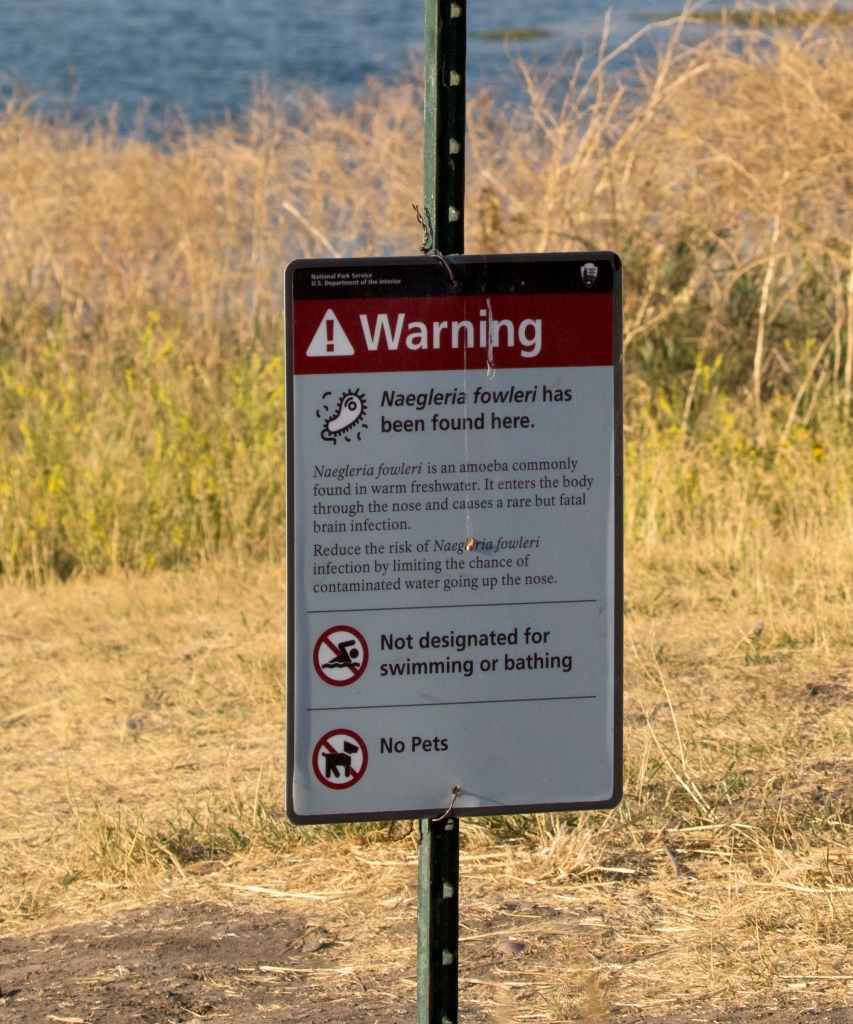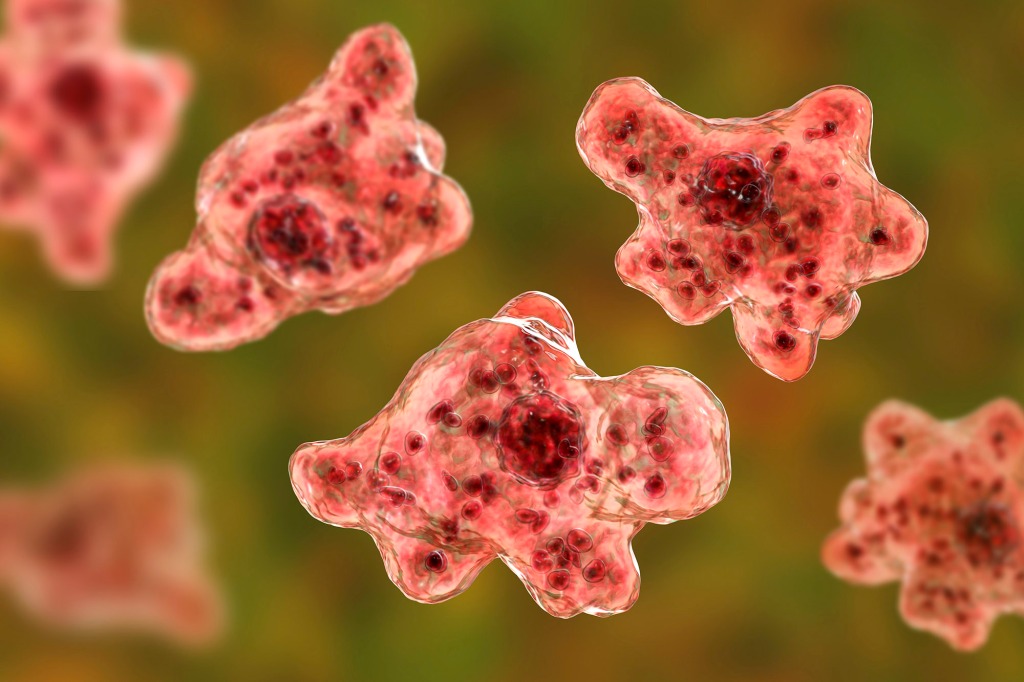Child died of brain-eating amoeba infection after swimming
A child has likely died from a rare brain-eating amoeba they possibly contracted while swimming in a Nebraska river, according to local health officials.
“We can only imagine the devastation this family must be feeling,” Douglas County health director Lindsay Huse said in a Wednesday statement regarding the deadly infection, ABC reported. “We can honor the memory of this child by becoming educated about the risk and then taking steps to prevent infection.”
The victim, whose age and gender has yet to be identified, had reportedly fallen ill and passed away this week after swimming in Nebraska’s Elkhorn River this past Sunday, per the Douglas County Health Department.
“The infection is extremely rare, but nearly always fatal,” officials added.
The Centers for Disease Control and Prevention is currently investigating whether the child’s death was caused by the specific parasite in question. If confirmed, this would be the state’s first death caused by Naegleria fowleri, according to the state’s Department of Health and Human Services.
Naegleria fowleri infiltrates swimmers’ noses and takes root in their brain, infecting them with primary amebic meningoencephalitis — an extremely rare condition that’s fatal 97% of the time, per the CDC. In fact, only four people — out of 154 recorded cases — have survived since the parasite was first identified in the 1960s.
Although found worldwide, the microscopic monster predominantly resides in warm freshwater bodies, such as lakes, rivers and hot springs, and can even show up in poorly maintained swimming pools. It cannot survive in salt water and cannot spread from one person to another, or infect people who drink tainted water.
Naegleria fowleri is more common in the southern US, but Nebraska health officials have warned that the amoeba has migrated north in recent years amid warming temperatures worldwide.


“Cases are more frequently identified in southern states but more recently have been identified farther north,” Nebraska’s state epidemiologist Dr. Matthew Donahue stated Wednesday, ABC reported.
Indeed, just last month, a Missouri woman died after contracting the amoeba while swimming at an Iowa beach.
Fortunately, swimmers can reduce the risk of infection by “limiting the opportunities for freshwater to get into the nose,” according to Donahue.
This means refraining from swimming during high temperatures and lower water levels, keeping one’s head above the water while swimming, and plugging one’s nose with clips or manually before submerging one’s noggin, per the DHHS.
The organization also warns people against “digging or stirring up the sediment at the bottom of the lake or river.”
Read the full article Here


